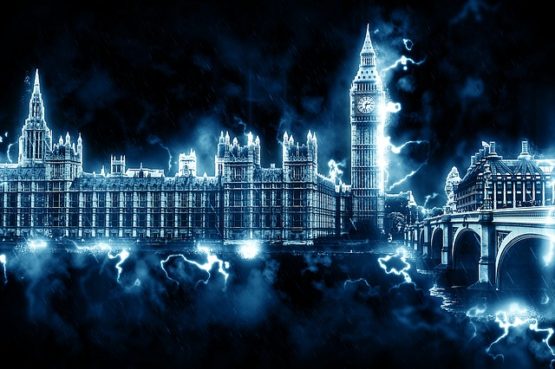Monthly Archives: July 2016
 Even before it came out that he probably wasn’t even gay, Walter Olson was not happy with the “self-loathing” explanation for the Orlando killer. He’s also less than jazzed about BLM shutting down a gay pride parade in Canada.
Even before it came out that he probably wasn’t even gay, Walter Olson was not happy with the “self-loathing” explanation for the Orlando killer. He’s also less than jazzed about BLM shutting down a gay pride parade in Canada.
It turns out that smokers are less than interested in being props in someone else’s morality play.
I can definitely understand that there are safety concerns with this device, but as long as nutritionists are recommending diet and exercise I don’t want to hear arguments about efficacy.
A moral dilemma for pro-lifers: The Texas abortion laws recently struck down by the courts increased second-trimester abortions, but reduced abortions overall.
Megan McArdle argues that, at the end of the day, we should treat rape like other crimes.
Hannah Ewens talks about taking grown men’s virginity. I remember one girl I flirted with who seemed to lose interest in me when she found out I wasn’t a virgin. (Note: Unlike this person Ewens did not exactly seek them out.)
As oil prices remain low, some oil companies are wanting to resort to protectionism.
In between the left’s multiculturalism and the right’s nativism, Michael Lind purports to offer a better way.
Razib Khan maps out the great human disruptions.
Matthew Yglesias explains how a seemingly small change in trade policy may have demolished manufacturing employment in the United States.
 Ahhh, but can we put a bomb on it?
Ahhh, but can we put a bomb on it?
A paper alleging fracking contamination of drinking water has been retracted.
Pokemon Go! (Find a dead body.) Pity that Law & Order (Prime) isn’t still around, because they always put so much thought into how the dead bodies are found.
Matthew Parris explains that now that he knows his country a little bit better, he likes it a little bit less. He makes some decent points, but the notion that an objective should be abandoned on the basis of who one’s allies are leaves nobody able to advocate for anything. It is usually the lofty point of view of those whose less savory allies cannot be attacked without accusations of racism.
This sounds interesting, but I’m already pretty backlogged on my audiobook queue.
Some rapid thoughts on very interesting @samtanenhaus in NYT mag, “How Trump Can Save the GOP” https://t.co/GuDyrrcSVy …
— David Frum (@davidfrum) July 9, 2016
1) In longest perspective, Trump’s role in US politics may be compared to that of William Jennings Bryan in 1896
— David Frum (@davidfrum) July 9, 2016
2) Bryan, like Trump, won a presidential nomination as tribune for a once dominant, now fading, group: small farmers; white working class
— David Frum (@davidfrum) July 9, 2016
I kid you not, yesterday I started two posts, one of which that was supposed to go up today.
The first involved Blue Lives Matter, and Black Lives Matter, and the intersection between the two. The opening point, which I had actually written, involved an argument about how blue lives actually are more important than black ones and white ones, in a manner of speaking. (The second part, which I haven’t yet written, would go on to explain the limits of this idea and how we have extended beyond them.)
The second involves the sense of glee that some people feel for the Pitchfork Comeuppance. The notion that “they” (a political group on the opposite side of an issue) didn’t listen and now people are taking this up with threats of violence. And sure enough, at least a few people early on made comments about how this, the violence, is why police need to reform. Which is right, in a way, and also wrong. But it’s been deployed by all sides. Last night is a reminder that it’s not a completely abstract argument.
Anyway, I have to decide what to do with those posts. Neither will come up today. In lieu of that, I will simply post the song of the moment.
 Good-bye to Neil Farage, the marmite of British politics and arguably the most successful British politician of an era. That said, I expect Team Norway to win and free movement to remain even if the UK doesn’t remain in the EU.
Good-bye to Neil Farage, the marmite of British politics and arguably the most successful British politician of an era. That said, I expect Team Norway to win and free movement to remain even if the UK doesn’t remain in the EU.
Eastern Europe makes its move…
Moving to Canada is an oft-used threat, but it’s actually kind of hard. Meanwhile, a look at population growth in the Great Maple Leaf.
Sort of like the mysterious man from Thrill Seekers, This guy keeps dying in every terrorist attack, and there’s (non-time-travelling) a reason for it.
JoAnna Novak worries that America is going to destroy sriracha because America.
 This should surprise approximately nobody: With diversity comes segregation.
This should surprise approximately nobody: With diversity comes segregation.
This is probably a good thing, considering that Twitter needed some fresh imagery in its election commentary.
Eastern Europe makes its move…
Will uranium seawater extraction make nuclear power completely renewable?
Woohoo! We’ve got more helium! We’ve got more helium!
Ben Casselman argues that while poor kids need the summer jobs, the rich kids are getting them.
In the medical profession, as in many others, pay-for-performance is a tricky thing.
Mimi Teixeira writes of the business and underbelly of clothing donations.
In effort to avoid contributing to the controversy, a rape victim in Germany lied about the race of the assailants.
I used to have one of these! Actually, three. People like them because they’re reliable, but they kept dying on me after about a year or so.
Homeschoolers are apparently killing it on the SAT.
Gaby Dunn complains about a common practice in media:
Not too long ago, I was desperate for paid work, so I gave away a lot of my ideas and rights. In 2013 I was a staff writer for the website Thought Catalog and they asked me if they could publish a book of my previously published TC essays. An editor and I put it together while I was a salaried employee for no extra money. I did not receive any bonus or commission on sales of the book. But wow! I had gotten to publish a book! Incredible! Three years later, I no longer work at TC. I am more well-known and have more fans. These fans find the book and excitedly purchase it thinking they’re supporting me. But I don’t see any of that money. The more high-profile I become, the more the book sells for Thought Catalog.
After that, I got hired at Buzzfeed, and it happened again. I was hired first as on-camera talent and then as a scripted series writer. I was excited to have a steady writing gig and thrilled by the $55,000 annual salary. Before being hired there, I had no idea the company had a huge YouTube presence, but I thought I’d stay a couple of months, find another industry gig, and peace out. I ended up staying eight months because the non-compete caused me to turn down other work and meetings that might have led to other work. There was a constant push-and-pull about how much we could do outside of Buzzfeed and how much other projects would take time from our full-time jobs. Even the concept of “time” was up for debate. I stayed because I felt trapped.
I went into it not entirely prepared to be sympathetic, but I thought she actually made some good points and the terms of “employment” really do seem excessive. Perhaps it can be chalked up to “the market at work” but at some point we’re going to miss our on talent if enough people actually start reading and considering the contracts.
Now, let me put on my White Male hat for a moment and say one thing about it… the focus on the demographic triumvirate (women, persons of color, LGBTQ was really something of a distraction, and I suspect lessens rather than expands the impact of the piece. Throughout the article, Dunn talks about how those groups are especially impacted. The contents of the article really are pretty important for anybody to understand, and the problem is a problem for anybody in media. The demographic framing runs the risk of telling others either “This is not something you want to worry about” or generally making them less sympathetic because they are on the “wrong” side of this. People who jump to the latter conclusion are not acting as their ideal selves… but most of the time, most people don’t.
India just set a new all-time record high temperature — 123.8 degrees (Washington Post | May 19, 2016)
A small city in northwest India climbed to a searing 51 degrees Celsius — or 123.8 degrees Fahrenheit — on Thursday afternoon, and broke the country’s record for all-time hottest temperature. The previous record, 50.6 degrees Celsius, was set in 1886.
The record was broken in Phalodi, which is just 125 miles away from the city that, up until this afternoon, claimed fame as the hottest location in India — Pachpadra.
April and May tend to be the hottest months in northwest India, and this year has been exceptionally so.
Europe to America: Your love of air-conditioning is stupid (Washington Post | July 22, 2015)
The U.S. has been the world’s leader in air-conditioning ever since, and it’s not a leadership Americans should necessarily be proud of. According to Stan Cox, a researcher who has spent years studying indoor climate controlling, the United States consumes more energy for air conditioning than any other country. In many parts of the world, a lack in economic development might be to blame for a widespread absence of air-conditioning at the moment. However, that doesn’t explain why even most Europeans ridicule Americans for their love of cooling and lack of heat tolerance.
Of course, Northern Europe is still colder than most regions within the United States and some countries, such as Italy or Spain, have recently seen an increase in air-conditioning. “The U.S. is somewhat unusual in being a wealthy nation much of whose population lives in very warm, humid regions,” Cox told The Washington Post in an e-mail. However, the differences in average temperatures are unlikely to be the only reason for Europeans’ reluctance to buy cooling systems. It’s also about cultural differences.
Whereas Americans prefer an average temperature of 70 degrees, Europeans would consider such temperatures as too cold, Michael Sivak from the University of Michigan says. “Americans tend to keep their thermostats at the same temperature all year around. In contrast, Europeans tend to set their thermostats higher in summer and lower in winter. Consequently, while indoors, Europeans wear sweaters in winter, while American wear sweaters in summer,” Sivak told The Washington Post.
Furthermore, Europeans are generally more used to warmer room temperatures because most of them grew up without any air-conditioning.
France heat wave death toll set at 14,802 (Associated Press | September 25, 2003)
PARIS (AP) — The death toll in France from August’s blistering heat wave has reached nearly 15,000, according to a government-commissioned report released Thursday, surpassing a prior tally by more than 3,000.
Scientists at INSERM, the National Institute of Health and Medical Research, deduced the toll by determining that France had experienced 14,802 more deaths than expected for the month of August.
The toll exceeds the prior government count of 11,435, a figure that was based only on deaths in the first two weeks of the month.
The new estimate includes deaths from the second half of August, after the record-breaking temperatures of the first half of the month had abated.
The bulk of the victims — many of them elderly — died during the height of the heat wave, which brought suffocating temperatures of up to 104 degrees in a country where air conditioning is rare. Others apparently were greatly weakened during the peak temperatures but did not die until days later.
Photo by ToddMorris 
 Mental illness… or demonic possession?
Mental illness… or demonic possession?
Yes.
Holy freakin’ crap, what a mess. Given the nature of the error, it seems to me that this is something that should be written off.
Minor League baseball players are barely paid in the five digits, and congress may allow them to be paid less. Minor league sports and their athletes, it turns out, are not very valuable (unless associated with a university).
This strikes me as about right. Yes means yes doesn’t just mean changing the threshold for rape, but changing the way young people have sex. It’s not just for college campuses, though. It looks like it’s going to be up to the courts, in the end.
Well this is a lovely story. So is this. Good job, Dixie. Good work.
I don’t mind this, but I’m not going to pretend the fact that it moves the ball in the direction it does isn’t significant. The concept of legislative momentum is right there in the story: We should do this because of that previous thing we did.
Lee Drutman argues that we have too many lawyers in politics. It’s something conservatives complain about, but maybe it ought to be liberals doing the complaining.
 Brookings Institute has discovered the concept of NAM.
Brookings Institute has discovered the concept of NAM.
A neuroscientist writes of all we don’t know about the brain.
If we’re looking for habitable words, we should look for orange planets, because that’s what Earth used to be.
I’ve linkied some bad news regarding the adoption of EMR, but here is some good news.
NPR looks at whether it’s cost-effective to pay teachers $100,000 a year.
Dennis Perkins writes of his experiences working in the video store industry for 25 years, and watching it die.
1. There is already a wall between Mexico and US. Well ok, a fence between parts of it. pic.twitter.com/cCmSFyeJyq
— Chris Arnade (@Chris_arnade) July 1, 2016
2. One section runs through all of El Paso, splitting it from Juarez, a town of 2 million pic.twitter.com/Lf98BTPjYH
— Chris Arnade (@Chris_arnade) July 1, 2016
3. It is just part of El Paso now. It cuts through parks pic.twitter.com/GZZNaehUUH
— Chris Arnade (@Chris_arnade) July 1, 2016
I’ve been pretty upfront that I believe the American Revolution was unjust. Not 100% unjust. I concede some very good things that might not have happened, did happen or happened more quickly because of the Revolution. I also don’t claim that but for the Revolution, we would be right now sipping Molson’s and complaining about wait times and doctor shortages imposed by our single-payer system but being grateful that it’s not as bad as the National Health Service. But I believe the war was unjust enough that if I were around back then and had the same sensibilities as today and had the courage of my convictions, I would have opposed it.
That’s not a particularly brave or shocking thing to say in 2016. I don’t fear tar and feathering, which was by the way a really, really horrific practice and not the comical thing it used to sound like to me. I’m not going to lose my property be and forced into exile or shunned.
But my position takes some people aback, even my liberal and leftist friends. Some of my very liberal friends who in other contexts threaten to move to Canada get offended when I say the war was unjust. #notallleftistsorliberals , of course. I know a Trotskyist whose take on the Revolution is probably “something something bourgeois elites something something.” And there’s always the Howardzinnians, but even they claim the Revolution itself was just but that it was counter-revolutioned. (Actually, I’ve never read Zinn, so I don’t know exactly what he argues.)
Why bother harping on this? Even if you concede that the Revolution was an unjust war, there are other unjust wars the US has engaged in, usually wars more unjust, and certainly more recently, than that unfortunate escapade. And the Revolutionary War was a really long time ago. The scars have been healed. If celebrating it brings some people comfort, then why be “that guy” who gripes about it? If the founding document that allegedly justifies that war inspires or at least provides ideological cover for causes I support, then why diss it?
One reason why I bother: It’s the founding moment of the story we tell ourselves as a nation. There’s a holiday dedicated to celebrating it. I like my days off as much as anyone, and I feel fortunate to have a job that gives me July 4 as a paid holiday. But I’m not too keen on celebrating the type of political activism that gang of criminals in Boston engaged in and that gang of more polite apologists in Philadelphia “ennobled” with their declaration.
However, I can’t hide that I get a certain contrarian thrill from saying I oppose the Revolution. I agree with Kevin Vallier when he warns against the “contrarian trap.” I think contrarianism, as contrarianism, is a bad thing.
I end on “however, maybe I’m being merely contrarian” and not on “I think I’m right” because I don’t know whether I’m being contrarian or not and it’s best not to think too highly of oneself. But I do believe that war was unjust and we shouldn’t celebrate it.
Back in high school, I knew a kid named Merrick. He was geeky to an extreme, awkward. Not bad looking, but in his junior year in high school he got his first girlfriend with a girl who (also not bad looking) had not yet had a boyfriend. He left the state for college, and we lost touch. We ran into each other in a very chance encounter, and he had transformed into someone completely different. Gone was the awkward arrogance of the geek, in was the confidence of someone who had made it in the financial world of London with a gorgeous wife and a polished demeanor.
Merrick had some sharp words about the Brexit. He voted against it for largely cultural reasons, though he said it would be economically disastrous as well. There is not much unusual in his analysis except for the personal aspect. This is not what he wanted, but it’s not the end of the world for him. He has skills and education. He is not rooted in Britain and if they hang out an unwelcome sign, he can do his thing in New York or Dublin or anywhere else. If Britain decides it doesn’t want him, he has no need of it.
His readiness and willingness is a perfectly fair response. And it’s fortunate that he has the opportunity to pick up and go. There’s a decent chance I would, too.
There are two ways of looking at it.
I look at it as (potentially) London’s loss and Britain’s. Merrick and his ilk are law-abiding, educated money-generators. Any sane country should want as many of them as possible. If he leaves London I hope it’s to return to the states. I want as many Merricks as we can find, regardless of their country of origin. I’m not in favor of open borders, but there aren’t that many of his caliber and if we took them all in, it would be almost all upside. Okay, okay, when it comes to Merrick I may be a bit biased, but you get the idea. I look at Merrick and people like him as a gain for any economy and culture that would have them, and I would similarly view their departure as a loss.
That’s not the only way of looking at it, however. Now, most uncharitably the other way of looking at it is looking at Merrick and noticing that he’s not white. He’s not not-white, either, exactly. He has olive skin, black hair, and a Scottish name. I suspect that as far as the census bureau is concerned, he’s white, but if a climate of hate were to take over Britain, he could very well be a target. In any event, no matter how good his accent, one thing he isn’t is English. He is as American as American can be, and most importantly he is a foreigner. Though he isn’t Jewish and doesn’t use the latter word, he’s a rootless cosmopolitan. Living in London.
All of these things are potentially important. In 2013, Alex Massie wrote a foreshadowing piece on the relationship between London and England, and it is pretty fraught. The internationalization and wealth of London has separated it from the rest of the country in a way that isn’t healthy. There was a predictable urban/rural divide, but notably England’s second largest city voted to leave. And despite Britain being an urban country, Leave won more votes.
The rest of the country doesn’t feel like it’s in it with London, and the response after the vote actually sort of confirmed that fact. “You want to leave the EU? Fine! We’ll leave you!” and something about inquiring whether apples were enjoyable. From afar, it looked a fair bit like the Remain’s motto could be boiled down to “London is who we are.” This sold better in London than outside of London. Which was lost due to the fact that everyone involved seemed to be from London.
As, of course, is Merrick. Which makes Merrick emblematic of three causes of resentment: He’s an immigrant, he’s based in London, and he’s in the money, both making good money and involved in the financial sector. As such, it’s really quite possible that the rest of England might not miss him as much as they should.
The debate that has erupted elsewhere is whether or not the Leave campaign was racist. Some observers are looking at other explanations, such as much of the above about London and inequality and the like. Others just don’t understand why we can’t call racism racism. It’s racist. It’s racist. It’s racist.
Which much of it is. Maybe most of it or maybe just some. It depends on how we define the term. But somewhere north of 0% of it is racism, and somewhere south of 100% of it is racism. Advocates of Leave like to argue it’s not racism because racism is unseemly and they themselves are not racist so what gives? Organizers, though, know that they have the racist vote and have done little to dissuade the votes that they need. Advocates of Remain, however, like the theory because it means that they can ignore the other side. If it’s racism it’s wrong. QED. But what do you do when you define something as racist, and 52% of the country is on the wrong side of that line that you drew? Saying racist isn’t enough. Even if we grant your moral and intellectual superiority, what do you do with a morally inferior electorate?
We often view these things as “local” problems. In the US, people are talking about what the GOP did to invite Trump, and of course Trump himself for what he is and isn’t doing. In Britain folks are blaming the Leavers and Cameron for giving the public a say. But there is something in the water, because it’s happening “locally” in a lot of places all at once. No matter how much Matthew Yglesias argues that Obama’s approval numbers suggest it’s a narrow phenomenon, 43% of the Democrats voted for a self-described socialist, 45% of Republicans voted for a megalomaniacal buffoon under a white ethnocentric banner, Labour voters remain firmly behind Jeremy Corbyn, the National Front is ascendant, AfD is ascendant, both the Golden Dawn and the Greek leftists are ascendant, and the mainstream parties in Austria combined for 23% of the vote in the last presidential election, leaving a runoff between the Greens and the far-right Freedom Party.
The consensus is breaking down. The historical tactic of dismissing the fringe as the fringe isn’t working anymore. Cosmopolis vs Hinterlandia has become an international phenomenon, and the fringe is closing in.
Merrick doesn’t need Britain. Britain, it increasingly believes, doesn’t need Merrick.

